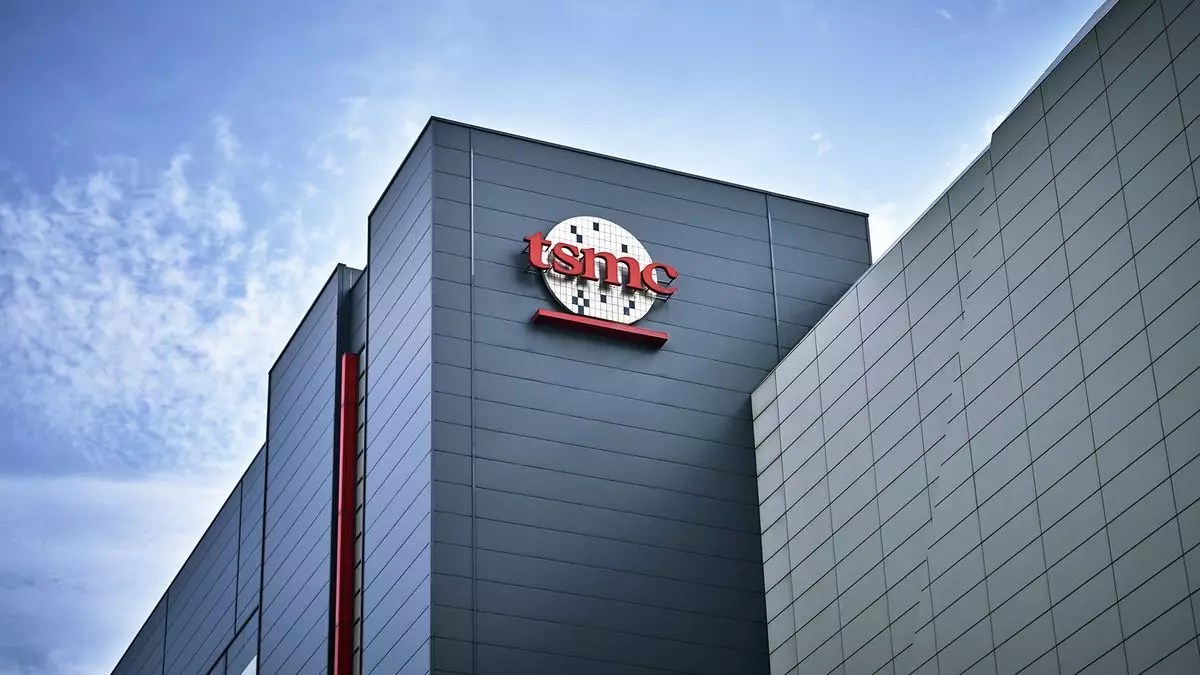The semiconductor industry has always been fraught with complexity, but recent events have thrown Taiwan Semiconductor Manufacturing Company (TSMC) into the spotlight for all the wrong reasons. As the largest chipmaker in the world, TSMC’s reputation is paramount, yet it may soon face a hefty fine in excess of $1 billion, according to reliable sources cited by Reuters. This potential penalty is tied to an investigation by the U.S. Department of Commerce into whether TSMC unintentionally breached export regulations by making chips that could end up in the hands of Huawei.
At first glance, a $1 billion fine seems like a drop in the ocean for a company with TSMC’s financial muscle. However, it is essential to recognize that substantial fines, especially in the realm of international trade and technology, are not merely about the dollars involved. They reflect deeper implications for global business practices, regulatory compliance, and operational integrity. TSMC, while financially robust, cannot afford to treat this issue lightly, as it risks complicating its business relationships and placing future endeavors at risk.
Export Control Regulations: A Thorny Landscape
The intricacies of export control regulations cannot be overstated. For TSMC, these rules are compounded by the U.S. government’s stringent approach toward companies that might be affiliated with national security concerns, particularly regarding China. As a manufacturer reliant on U.S.-made machinery and technology, TSMC finds itself in a precarious position. The company’s predicament arose when it notified the U.S. government that one of its chips was used in Huawei’s Ascend 910B AI processor, leading to the U.S. punishing intermediary companies like Sophgo.
What makes the situation particularly tricky is the notion of intent. While TSMC claims it has not serviced Huawei since 2020, the mere presence of their chips within Huawei’s products brought scrutiny. The situation is exacerbated by the fact that the U.S. government has already placed Huawei on its Entity List, a regulatory measure that drastically complicates any dealings with the Chinese technology behemoth. This is a classic example of the chilling effect regulatory layers can have on companies operating in a globalized world.
The Potential Fallout
Should TSMC face this proposed penalty, the company will have some decisions to make. The fine can be interpreted as a “charging letter,” suggesting that TSMC has a window to address the allegations. This opportunity could allow the company to present its case, arguing that any potential infractions were unintentional and highlighting its commitment to compliance and ethical business practices. The stakes are not only about the immediate financial burden but also about how this incident will be perceived in the long term.
In the current global landscape, with heightened geopolitical tensions and fierce competition in technology, even a hint of impropriety can tarnish a company’s reputation. The fallout could affect TSMC’s numerous partnerships, especially as the semiconductor industry pivots towards even greater globalization in the years to come.
TSMC’s Strategic Investments Amidst Regulatory Scrutiny
Despite these looming challenges, TSMC is not retreating. The company had recently announced a staggering $100 billion investment in U.S. manufacturing capabilities, indicating its serious interest in maintaining and growing its footprint in one of its largest markets. This ambitious move reveals an effort to realign its operations with U.S. regulatory expectations while simultaneously positioning itself as a leader in cutting-edge technology. TSMC’s investments in the United States signal a commitment to not only weather the current regulatory storm but also to contribute to national interests around technology independence and security.
However, it runs the risk of being caught in the crossfire of political tensions, particularly given the aggressive stance of the U.S. administration on trade and national security issues. As TSMC navigates this complicated terrain, it must balance its expansive growth initiatives with the necessity of conforming to shifting regulations that could place its operational model at risk.
It’s evident that TSMC’s future is at a crossroads, influenced by the regulatory environment, geopolitical dynamics, and market forces. The company’s ability to manage these external pressures will define its next chapter in the semiconductor saga.


Leave a Reply